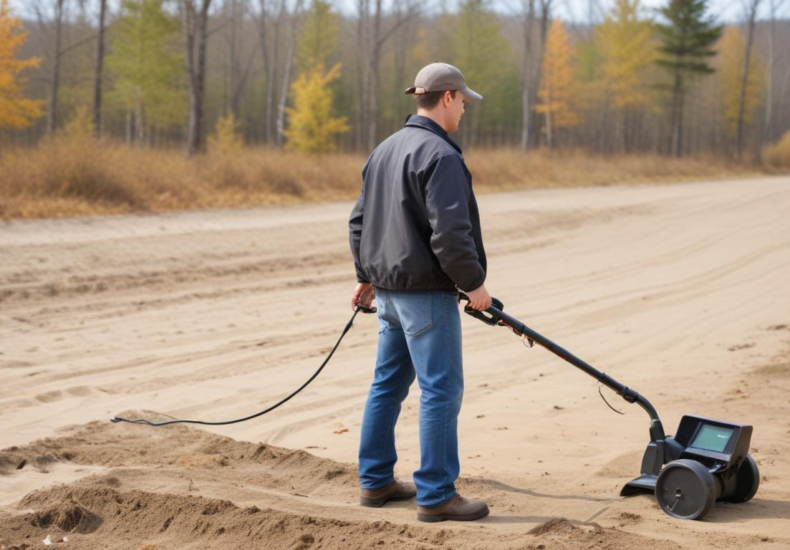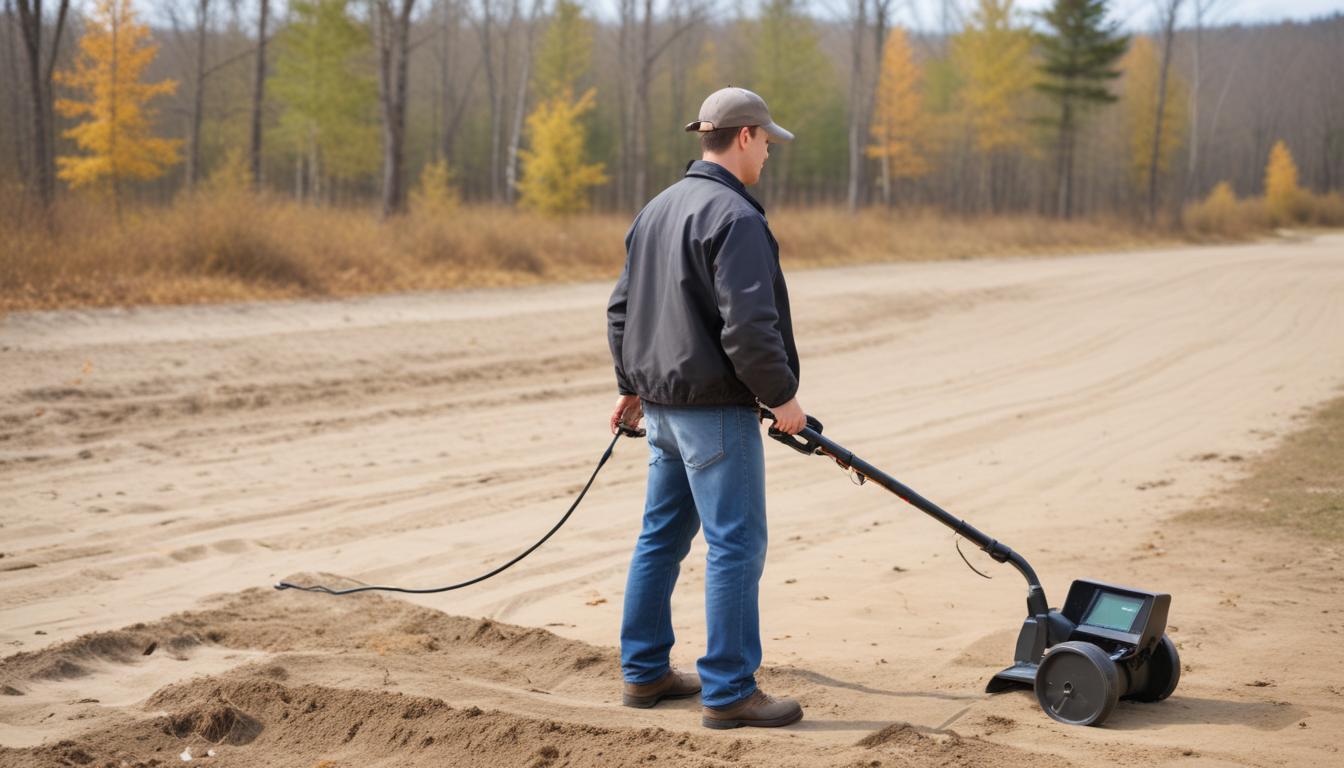
Can you rent a metal detector locally?
Renting a metal detector offers a range of benefits, particularly for individuals who do not require the device on a regular basis. The convenience of metal detector rental means you can access this sophisticated equipment for short-term use without the commitment of a purchase. This is particularly useful for those looking to engage in metal detecting as a one-time activity, such as during a vacation or a specific event.
Another significant advantage is the cost-effectiveness. Buying a high-quality metal detector can be quite expensive, especially for top-tier models. Renting allows you to access these advanced models at a fraction of the cost of ownership. This is ideal for beginners who wish to try out the hobby before making a substantial investment or for experienced enthusiasts who need a specialized device for a particular search that their current model can’t handle.
Borrowing equipment also reduces the hassle of maintenance and storage. When you own a metal detector, you need to care for it and find a place to store it when it’s not in use. With rentals, maintenance is typically handled by the rental company, ensuring that the device is in good working condition when you receive it. Storage is also not a concern, as you return the device after use.
Renting can thereby be a smart, flexible choice that allows hobbyists, vacationers, and treasure hunters to use premium equipment temporarily without the burdens of long-term maintenance or upfront investment. This flexibility can significantly enhance the enjoyment and productivity of your metal detecting adventures.
How to find local rental options
Finding local rental options for a metal detector can be straightforward if you know where to look. A good starting point is to search online for “metal detector rental near me.” This search can provide a list of businesses in your area that offer short-term use of metal detecting equipment. Additionally, many outdoor equipment rental services, including companies that specialize in camping or survey equipment, often carry metal detectors in their inventory.
You can also explore local hobby shops or stores that specialize in metal detecting gear. These businesses not only sell equipment but frequently offer rental options to encourage new enthusiasts without requiring them to invest in costly equipment right away. Some beach and coastal service companies might also have metal detectors available, especially in areas where beachcombing and treasure hunting are popular activities.
Checking community resources like local clubs or forums dedicated to metal detecting can lead you to borrow equipment or find rental opportunities that are not widely advertised. Members of these communities often share insider tips on where to rent and how to use the equipment effectively. They can also offer guidance on the best models for specific types of metal detecting activities, whether you’re hunting for relics, jewelry, or coins.
Likewise, public libraries or university extension programs occasionally have metal detectors available for community use. Although less common, these institutions sometimes provide tools and equipment for educational purposes or for hobbyists looking to explore new activities.
When seeking out a rental, ensure that the provider is reputable and that their metal detectors are well-maintained. Check reviews and possibly connect with previous customers to understand their experiences. This can prevent potential frustration and ensure that your metal detecting experience is enjoyable and successful.
Comparison of rental costs
When comparing the costs involved in metal detector rentals, it’s essential to factor in a few key considerations that affect pricing. Costs typically vary depending on the model of metal detector you choose to rent, the duration of rental, and the specific policies of the rental company. Generally, you can expect to pay anywhere from $20 to $50 per day for a basic metal detector rental. More advanced models outfitted with additional features such as greater depth detection or specialized technology for different terrains might cost more, typically reaching up to $70 or more per day.
For those looking into short-term use over a weekend or a few days, rental companies often offer discounted rates for extended periods. For instance, what might cost $50 per day could be reduced to $90 for a three-day weekend, making the per day cost more economical. This pricing structure incentivizes longer rental periods while making it cost-effective for users requiring the metal detector for several consecutive days.
It’s also worth considering any additional fees that could accrue when you borrow equipment. Some companies might charge extra for accessories such as headphones, digging tools, or even batteries. Deposits are also common and can vary in amount, often depending on the model or brand of metal detector rented. This deposit is generally refundable provided the metal detector is returned in good condition and without damage.
Moreover, locality can play a significant role in costing. In areas where metal detecting is a popular activity, you might find competitive rates due to multiple rental service providers. Conversely, in places where the demand or availability of metal detector rental is low, prices may be higher. Always consider the location and accessibility of the rental service to ensure you are receiving the best possible deal.
It’s beneficial to compare costs not only between different rental providers but also against the potential long-term investment in purchasing a metal detector. If you find yourself frequently renting, it may be more cost-effective in the long run to purchase a unit. However, for occasional use, the cost benefits of renting are clear, offering affordability and flexibility without the commitment of a full purchase. Always assess your needs and frequency of use before deciding to rent or buy a metal detector.
Tips for using a rented metal detector

When using a rented metal detector, there are several tips and best practices that can help you maximize your experience, especially if you’re only borrowing the equipment for short-term use. First and foremost, it’s important to familiarize yourself with the specific model you’ve rented. Each metal detector operates slightly differently, and understanding the settings and features can significantly affect your success in finding what you’re looking for.
Before heading out, take some time to read the manual or watch any instructional videos provided by the rental company. This can give you insights into the best techniques for using the device and might include valuable tips on how to adjust the sensitivity and discrimination settings, which are crucial for differentiating between types of metals.
Another important tip is to test the metal detector in your yard or a nearby park before you venture out on a more significant expedition. This allows you to get a feel for how the detector responds to various metals and depths. You might find coins, jewelry, or other small items to practice on, helping you become more confident in interpreting the signals from the device.
Ensure you have all the necessary accessories for a successful metal detecting session. Sometimes, additional items like headphones, trowels, or pouches for collecting finds may not be included in your metal detector rental. Check with the rental provider about what is included and consider renting or purchasing any additional equipment separately.
Lastly, be mindful of where you plan to use the metal detector. Seek permission if you’re entering private property or areas where metal detecting might be restricted. Always follow local laws and regulations related to metal detecting, and make sure to respect the environment by filling in any holes you dig and disposing of any trash you might uncover.
By preparing adequately and following these tips, you can ensure that your experience with a rented metal detector is both enjoyable and fruitful. Whether you’re treasure hunting for the first time or are an experienced enthusiast in need of specialized equipment for a particular search, taking the time to understand and respect the borrowed equipment can make a significant difference in your metal detecting endeavors.
Common rental policies and agreements
Understanding common rental policies and agreements is crucial when you decide to borrow equipment like a metal detector. Most rental companies have specific terms and conditions that you must agree to before taking possession of the metal detector. These typically cover the duration of the rental, the cost, the condition in which the equipment must be returned, and what constitutes acceptable use.
Typically, the rental agreement will specify that the metal detector must be returned in the same condition it was received. This includes avoiding any modifications, misuse, or excessive wear and tear. Should damage occur, the renter is usually responsible for the repair costs, which may be deducted from the security deposit initially paid. It’s important to thoroughly inspect the equipment before it leaves the store to ensure it is in working order and any existing damage is documented.
Most agreements will clearly state the rental period, which can range from a single day to several weeks. Extensions of the rental period often require prior approval from the rental company and may incur additional charges. Late returns can also result in penalties or extra fees. Understanding these details can help avoid any unexpected costs at the end of the rental period.
Security deposits are another common aspect of renting a metal detector. This deposit, which is usually refundable, acts as a safeguard for the rental company to cover potential losses or damages. The amount varies but is typically proportional to the value of the metal detector. Ensure that the terms regarding the refund of the deposit are clear to avoid disputes upon returning the equipment.
Additionally, rental companies often limit where and how their equipment can be used. For instance, some might prohibit the use of metal detectors in certain types of terrain or geographic areas to prevent damage. Compliance with these usage guidelines is crucial not only to adhere to the rental agreement but to ensure the safety and longevity of the equipment.
For those requiring a metal detector for short-term use, thoroughly understanding the rental policy and the agreement you sign is essential. This understanding helps in managing your responsibilities as a renter and ensures a smooth, enjoyable experience with the borrowed equipment.
You may also like
Archives
Calendar
| M | T | W | T | F | S | S |
|---|---|---|---|---|---|---|
| 1 | 2 | 3 | 4 | |||
| 5 | 6 | 7 | 8 | 9 | 10 | 11 |
| 12 | 13 | 14 | 15 | 16 | 17 | 18 |
| 19 | 20 | 21 | 22 | 23 | 24 | 25 |
| 26 | 27 | 28 | 29 | 30 | 31 | |
Leave a Reply